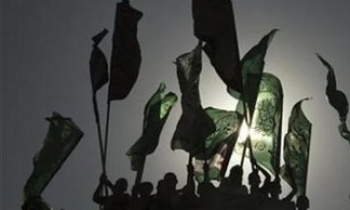It's that man again: Sir Martin Sorrell, advertising mogul, media guru, the thinking man's Alan Sugar - or (as he would charmingly add) 'the poor man's Warren Buffett'. This time Sorrell is on his feet at a Newspaper Society conference designed to hymn the wonders of the local press, which he does in amiable if abbreviated fashion. But really he wants to talk 'legacy businesses' and 'verticals'. That's the future, with a shiver. It is also the harsh present.
Just glance at the advertising scene for a moment: and bring your binoculars. ITV admits a £160m downturn and hacks £60m out of its costs column (the one called programmes). Other television companies are in similar despair when they look at their summer bookings. The Johnston Press, a confident giant of local publishing, reports ads nearly 10 per cent worse than last year. And Sorrell's own Group M forecasts not just that internet advertisement spending will overtake national press spend by the end of the year but that, by the end of 2007, the nationals' market share will have contracted by nearly two-thirds since the year 2000.
Make no mistake, says Sorrell, the 'legacy businesses', the ones with heavy plant, heavy staffing, heavy weights of history on their shoulders, are in trouble. They can never move quickly enough: they are bound to be out-thought and outfought by the likes of eBay, the swift-rising, unencumbered stars of this digital century. Only verticals - starting or buying something different, as ITV have bought Friends Reunited - can rescue them.
And see how incredibly fast things are moving. See how (Japanese experts tell him) Rupert Murdoch's $600m purchase of MySpace.com has already turned into $4-5bn of vertical brilliance. See how Omynews - started online by, inevitably, a Mr O in South Korea six years ago - now boasts 15 million hits a day, with just 41 permanent staff and 21,000 'citizen reporters'. See how, as China and India surge forward, adding software wizards in tens of thousands, 'this is not an American-dominated world any longer'.
All white-knuckle stuff if you're in Fleet Street, never mind working on the Keighley and Bingley Chronicle. Here's the imminent end of everything, a mist of yellow doomfulness that suddenly affects the conventional media world, and newspaper journalism in particular. But keeping your balance also means keeping calm - for the wisdom of Sorrell wanders around many mansions. Five years ago he told a Yale audience that 'the world is being Americanised'. But that was before he saw India. And, three weeks ago, he said that new media would 'almost certainly' not supplant existing ones.
Now, of course, gurus are allowed to change their minds or adjust their perceptions. And Sorrell, CEO of an umbrella holding company with 70 separate operators, 65,000 people and 950 offices in 92 companies, is allowed to correct course whenever he likes. Nevertheless, there's an important countervailing thought here.
For aren't J Walter Thompson and Ogilvy and Mather, historic names from the WPP collection, legacy businesses, too? And what precisely are advertising agencies and their great media-buying adjuncts for any longer? The legacy newspaper distribution business, under OFT pressure, is currently being asked whether driving diesel-fuming lorries along motorways in the middle of the night is the best way of getting millions of surplus copies to recycling dumps 24 hours later. You could ask much the same question about advertising agencies.
Are they servants of the customer? Yes, when they're making their pitch for your account. Are they wrong when, four months or 40 years later, they lose that account? Rarely: the customer, more like, hasn't lived up to their vision. And what do Sir Martin's 65,000 minions do, precisely? They're creative, in a variable sort of way. But they bring no business with them, when they come. Advertising revenue itself, when they describe it, is a detached force of nature, dependent on economies, cycles, trends, not their efforts.
Yet an industry that brings so little to the table also likes to play the prophet: all for the kind of premium that nets WPP worldwide some $3.5bn in revenues each year. Only the ancient divide between barristers and solicitors seems, on reflection, to be more baroque: and at least the Bar Council gets a good kicking occasionally.
I exaggerate a bit, to be sure. But when Sorrell himself talks about Spotrunner.com - a new net wheeze from California that enables smallish businesses to customise their own TV ads and book a schedule for a quarter of what a conventional agency would charge - you hear opportunity come knocking. What would truly make Sir Martin quake? Google taking control of its own advertising and cutting the JWTs of this world out, he says frankly.
There are benefits from pounding further along this line: from pointing out that the agencies were slowest of all to see the potential of the net; from remembering that global and regional are very different and that what works in Korea may not work anywhere else; from citing the latest World Press Trends survey which shows the number of newspapers and readers increasing, largely because China and India race ahead in print, too: from registering that most people live their lives within 20 miles of home, not on a global stage. From wondering where gurus fit.
And the biggest benefit of all is seeing advertising's middlemen as players, not remote and lordly analysts. Of course the internet is on the rise. But - from the free small ads of Craig's List to the black spot of Spotrunner - it is also the gale force of change that could blow WPP away, just like any legacy log cabin left in its path. Here are the massed ranks of media. We're all in this together, aren't we?









